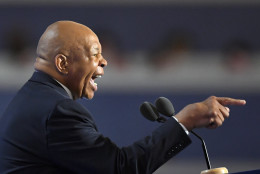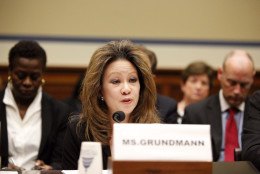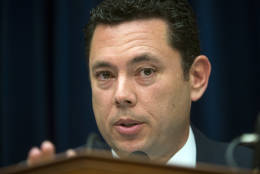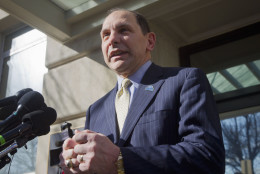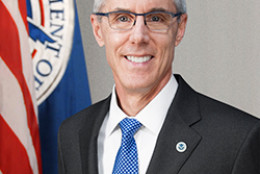Office of Special Counsel
-
The Merit Systems Protection Board is moving forward with a whistleblower case from James Wilson, the chief human capital officer for the Office of Special Counsel, who filed a whistleblower retaliation complaint against OSC. The agency plays a key role in investigating cases of whistleblower reprisal and protecting federal employees from prohibited personnel actions.
May 30, 2017 -
House Oversight and Government Reform Committee Ranking Member Elijah Cummings (D-Md.) said recent agency communications memos violate the Whistleblower Protection Enhancement Act, (WPEA) because they do not include a mandatory statement explaining that federal employee communications with inspectors general or members of Congress are protected.
January 26, 2017 -
Initial shock and online backlash after a handful of federal agencies were handed down communication directives has given way to backtracking and also encouragement for federal employees to stand up for open government and whistleblowing.
January 25, 2017 -
With the the chairman of the Merit Systems Protection Board resigning in less than a week, employees appealing their disciplinary actions will have to be patient as they wait for President-elect Donald Trump to appoint at least one member for a quorum.
January 04, 2017 -
A package of oversight bills was voted out of the House during the early days of the 115th Congress. Some of the bills are similar to previous legislation that didn't make it out of the last session. The bills include more access to information for government watchdogs, as well as protections for whistleblowers.
January 04, 2017 -
Election Day can be a whirlwind of campaign signs, crowded polling sites and an avalanche of social media posts. To help cut through the chaos, here's Federal News Radio's roundup of congressional races, presidential platforms and Hatch Act reminders.
November 08, 2016 -
With only one more month left to go until the presidential election, the Office of Special Counsel wants to remind federal employees of a few Hatch Act guidelines meant to keep political activity out of the workplace.
October 04, 2016 -
The Office of Special Counsel is taking a step forward with a new, five-year strategic plan for the future. As more federal employees turn their cases to OSC than ever before, the agency said it's adjusting its priorities to better meet the demands of an increasing workload and persistent budget uncertainty.
September 30, 2016 -
At first glance, this year's results of the Federal Employee Viewpoint Survey might not show many significant improvements. But several large and small agencies, including the Housing and Urban Development Department and the Office of Special Counsel, made noticeable improvements in employee engagement this year.
September 26, 2016 -
The Veterans Affairs Department paid roughly $5 million to some employees to settle disciplinary actions, according to House VA Committee Chairman Jeff Miller (R-Fla.). VA made 208 settlement agreements with employees between July 2014 and the present. The department used monetary payouts to settle 72 percent of those cases.
September 15, 2016 -
The Office of Special Counsel offered a new approach for analyzing whistleblower retaliation cases, as the agency released its third amicus brief opposing higher burdens on whistleblowers. This particular case involved an employee at the Veterans Affairs Department.
August 05, 2016 -
In the first event of its kind, the oversight community touted the importance of whistleblowers and their contributions in combating waste, fraud and abuse at a National Whistleblower Appreciation Day event on Capitol Hill.
August 01, 2016 -
More federal employees turned to the Office of Special Counsel with prohibited personnel practice or whistleblower complaints in 2015, and the agency resolved more cases than any other year in its history.
July 12, 2016 -
The House Oversight and Government Reform Committee continued their investigation of the Transportation Security Administration, this time hearing from Administrator Peter Neffenger and Department of Homeland Security Inspector General John Roth.
May 13, 2016 -
For the second time this year, the Office of Special Counsel said the Veterans Affairs Inspector General isn't properly addressing three cases of whistleblower allegations. OSC Special Counsel Carolyn Lerner voiced similar concerns about two other cases to President Barack Obama in February.
April 27, 2016


